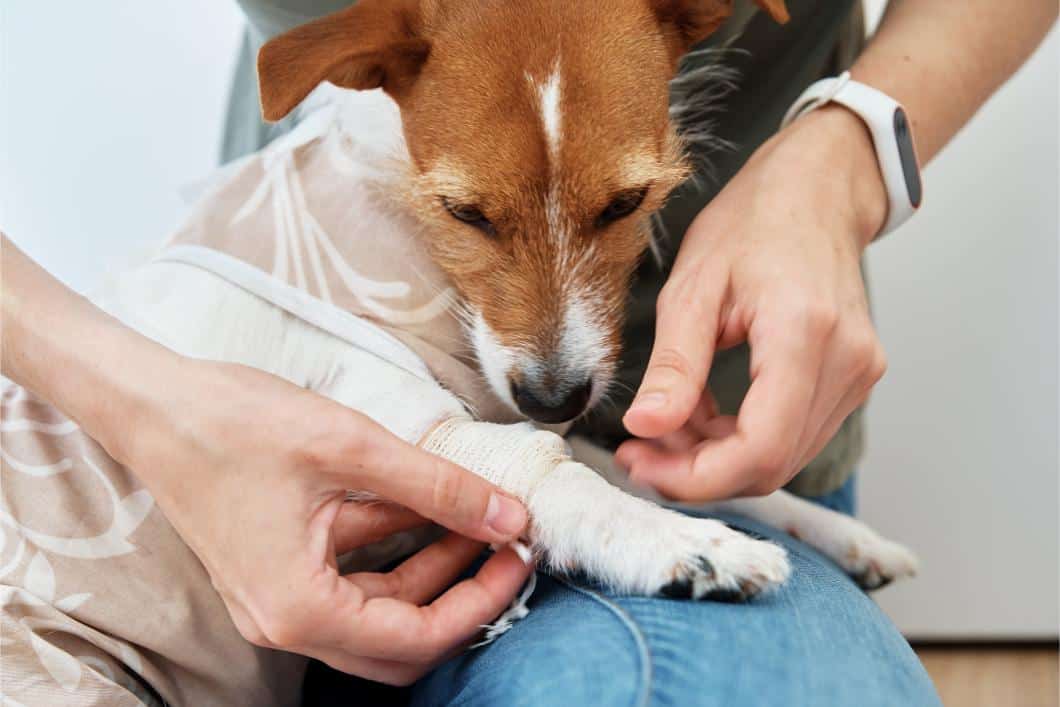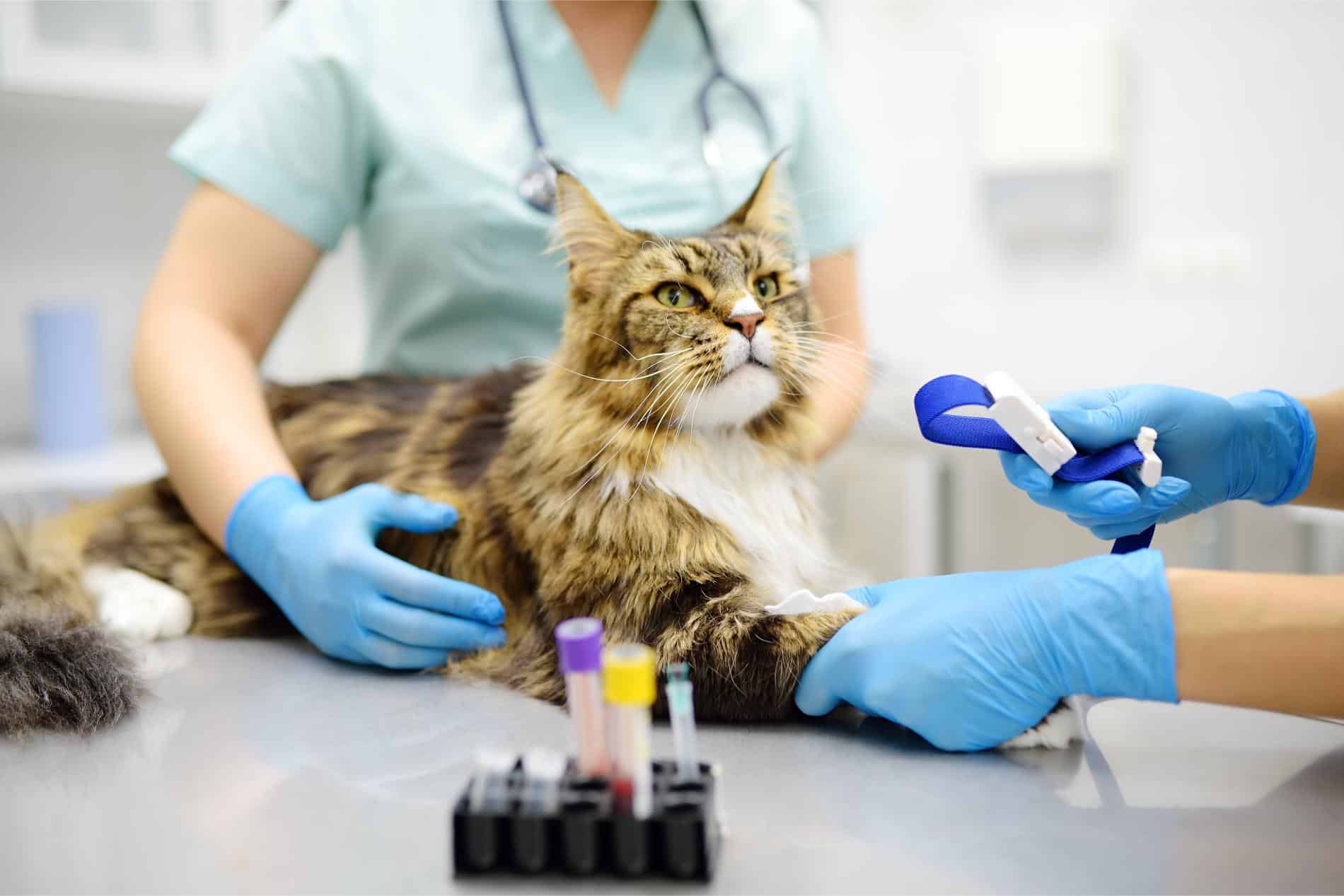Our Blog
Harmful BBQ Foods You Shouldn’t Feed to Your Pet

Gatherings around the grill are a staple of the summer season, and it’s natural to want to include your furry family member in the festivities. But some people foods are a recipe for disaster when it comes to our pets. In this blog, our team at Bowman Veterinary Hospital offers helpful guidance on foods that should never be fed to pets, and how to prevent potential outdoor hazards.
Continue…Why Cats Need High Protein Diets

Cats are fundamentally different from dogs (and humans!) in one big way: they're obligate carnivores. This means their bodies need animal-based protein in order to function. Unlike omnivores, cats only need nutrients found in meat.
They don't need fruits. They don't need vegetables.
All they need is meat.
Continue…Signs of Arthritis in Pets

As our pets get older, their bodies go through changes that can take their toll. One of the most common conditions that affects senior pets is arthritis, and in particular, osteoarthritis (OA).
Today, the team at Bowman Veterinary Hospital wants to make sure the pet parents in our community know what to watch for with arthritis.
Continue…Grow Pet-Safe Plants, Avoid a Pet Poisoning

Having a green thumb and owning a pet are not mutually exclusive but growing certain plants, trees, flowers and shrubs does require careful consideration in (and around) a pet’s environment. This can mean that certain plants are off-limits, but the sacrifice is usually well worth it.
Since a pet poisoning is one of the scariest experiences for pets and their people alike, it makes sense to eliminate all the possible risks inside the home and around the property.
Continue…Seasonal Pet Allergies

If your pet is constantly scratching, sneezing, or licking, pet allergies might be the culprit. At Bowman Veterinary Hospital, we’re here to help you uncover the cause of your pet’s discomfort and explore effective allergy treatments for pets to get their tails wagging happily again.
Continue…Decoding Pet Food Labels

Few things are more overwhelming than heading to your nearest pet supply store and trying to pick the perfect food for your furry friends. Shelves are absolutely packed with options. Worse, they all seem to be clamoring for the title of healthiest pet food ever. It’s no wonder choosing pet food can be downright daunting.
Your goal as a pet parent is to look past the flashy claims and get down to business: reading pet food labels. These are overwhelming too, but with this guide from the team at Bowman Veterinary Hospital, you’ll be ready to pick a nutritious food brand for your pet.
Continue…Pet First Aid Tips for Pet Owners

Imagine this: your dog suddenly cuts her paw on a walk, or your cat eats something he shouldn’t.
Would you know what to do?
Being equipped with pet first-aid skills is more than just a practical matter. It’s an act of love that can save your furry companion’s life.
The team at Bowman Veterinary Hospital is here to help with emergency care for pets. In today’s blog, we’ll show you how to prepare for emergencies. The goal? For you to be able to confidently handle situations until you can get your pet professional pet emergency care.
Continue…Signs of Dental Problems in Pets

It can be hard to tell what is going on with your pets and their health. Since they can’t physically tell us when something is wrong, it’s up to us to recognize the signs of an issue. Bowman Veterinary Hospital is here to help you understand when to call the vet for dental issues and when it can wait.
Continue…New Year’s Resolutions for Pet Owners: Commitments for a Healthier Pet

Ring in 2025 with these pet care resolutions from our team at Bowman Veterinary Hospital, and help your furry family members have their happiest and healthiest year yet!
Continue…How Blood Tests Can Help Detect Hidden Health Issues in Pets

When it comes to our pets’ health, pet parents often depend on visible signs that something is wrong. This comes naturally for us, and we do it without even thinking. We notice when our pet seems more tired than usual, or when they start limping.
But some health issues lie hidden beneath the surface. For these, pet blood work is one of the most important tools around. Blood tests for pets allow your veterinarian to understand your dog or cat’s health at a cellular level. The team at Bowman Veterinary Hospital would like to highlight the key ways blood tests can help detect hidden health issues in pets.
Continue…Support Local Animal Shelters This Holiday Season: Simple Ways to Help

Do you believe in Santa “Paws”? At Bowman Veterinary Hospital, we certainly do! Join us in making this holiday season a happy one for pet shelters!
Continue…Preparing Your Pet for Holiday Travel: Tips for a Stress-Free Journey

The holidays are upon us, which means lots of cheer, lots of delicious food, and for some of us, lots of holiday travel to see family and friends far and near. If you’re a pet parent and you want to bring Fido or Kitty along, you might feel stressed about how to handle holiday travel for pets.
Never fear! The team at Bowman Veterinary Hospital has the tips you need for a successful trip.
Continue…Autumn Adventures: Making the Most of Fall Walks with Your Pet

Fall is the perfect time to get back to nature, and whether you’re planning to hit the hiking trails or simply take long, leisurely autumn walks with pets, our team at Bowman Veterinary Hospital has you covered with health and safety tips to keep you and your pets on the move.
Continue…

